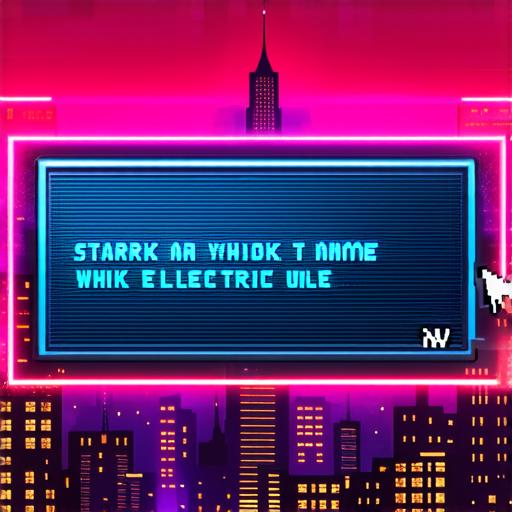Table of Contents
- Introduction
- The Importance of a Good Video Game Name
- Tips for Choosing a Memorable Name
- Best Practices for Naming Your Game
- Case Studies: Successful Video Game Names
- Expert Opinions and Advice
- FAQs
- Summary
Introduction
As a game developer, you put your heart and soul into creating an immersive gaming experience for players to enjoy. However, one of the most challenging aspects of game development is coming up with a name that resonates with your target audience and stands out from the competition. In this guide, we will explore various aspects of choosing a video game name, including tips, best practices, case studies, expert opinions, and FAQs.
The Importance of a Good Video Game Name
A good video game name is essential for several reasons:
- Memorability: Players are more likely to remember a catchy and unique name that stands out from the crowd. This can increase the chances of your game being downloaded or purchased.
- Branding: A well-chosen name can help establish a strong brand identity for your game, which can be beneficial for marketing and promotion purposes.
- SEO: Your game’s name is an important factor in search engine optimization (SEO), as it can impact the visibility of your game on various platforms.
- Emotional Connection: A name that evokes emotions or resonates with players can create a stronger connection between them and your game, leading to increased engagement and loyalty.
Tips for Choosing a Memorable Name
Here are some tips for choosing a memorable name for your video game:
- Keep it Simple: Avoid names that are too complex or difficult to pronounce or spell. Stick to simple, easy-to-remember names that are easy to spell.
- Be Unique: Choose a name that stands out from the competition and is not easily confused with other games or products.
- Use Descriptive Words: Incorporate descriptive words into your name that accurately reflect the theme or genre of your game. This can help players understand what your game is about at a glance.
- Consider Cultural Relevance: Choose a name that is culturally relevant to your target audience, as this can increase the chances of your game being well-received and popular.
- Keep it Short and Sweet: Stick to short, catchy names that are easy to remember and pronounce. Longer names can be overwhelming and difficult for players to recall.
Best Practices for Naming Your Game

Here are some best practices for naming your game:
- Research: Conduct thorough research on other games in the same genre or with similar themes to ensure that your name is not already taken or too similar to others.
- Testing: Test different names with a focus group or survey to see which one resonates best with players and is most memorable.
- Brand Identity: Consider how your name aligns with your brand identity and the overall tone of your game. Make sure that your name reflects the values and aesthetics of your game.
- SEO: Consider how your name will perform in search engine rankings, as this can impact the visibility of your game on various platforms.
Case Studies: Successful Video Game Names
Here are some examples of successful video game names and how they were chosen:
- Minecraft: Created by Markus Persson, Minecraft’s name was chosen because it evokes the idea of mining for resources in a virtual world. The name also has a strong emotional connection to players, as it is often associated with childhood memories of playing with blocks.
- Angry Birds: Created by Rovio Mobile, Angry Birds’ name was chosen because it accurately reflects the theme of the game, which involves angry birds trying to destroy pigs’ structures. The name also has a catchy, memorable sound that is easy to pronounce and remember.
- Fortnite: Created by Epic Games, Fortnite’s name was chosen because it accurately reflects the theme of the game, which involves building fortresses and fighting against enemies. The name also has a strong emotional connection to players, as it evokes images of battle and survival.
Expert Opinions and Advice
“A good name is like a good first impression. It’s the first thing that players will see, and it should immediately grab their attention and make them want to learn more about your game.” – John Carmack, co-founder of id Software (Doom, Wolfenstein)
“When naming your game, think about what sets it apart from other games in the same genre. Choose a name that reflects the unique features and mechanics of your game, and that will be memorable to players.” – Shigeru Miyamoto, creator of Super Mario (Nintendo)
“Consider the cultural relevance of your target audience when choosing a name for your game. Names that are culturally significant or resonate with players can increase the chances of your game being well-received and popular.” – Peter Molyneux, founder of Lionhead Studios (Fable)
FAQs
Q: Should I choose a name that is easy to spell or one that is more complex?
Choose a name that is easy to spell, but not too simple or generic. A simple, memorable name can be easier for players to remember and pronounce.
Q: Can I use trademarked words or phrases in my game’s name?
No, using trademarked words or phrases in your game’s name without permission can result in legal action and damage to your brand reputation.
Q: How important is SEO when choosing a game name?
SEO is important for visibility on various platforms, but it should not be the primary focus when choosing a game name. Choose a name that accurately reflects the theme and genre of your game.
Q: Can I change my game’s name after it has been released?
Changing a game’s name after it has been released can be difficult and may result in confusion for players. It is best to choose a name that accurately reflects the theme and genre of your game before release.
Summary
Choosing a video game name is an essential aspect of game development, as it can impact memorability, branding, SEO, and player engagement. To choose the best name for your game, follow these tips: keep it simple, be unique, use descriptive words, consider cultural relevance, test different names with focus groups or surveys, align with your brand identity, and research other games in the same genre. Additionally, seek expert advice and avoid using trademarked words or phrases without permission.



